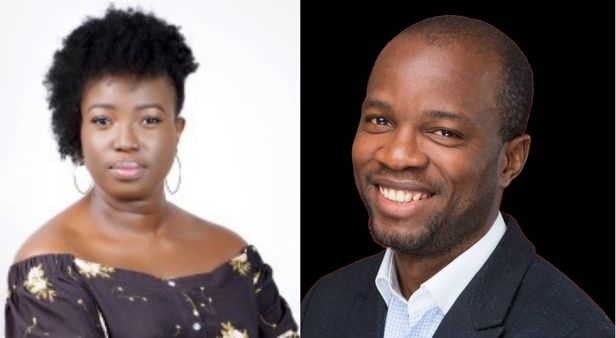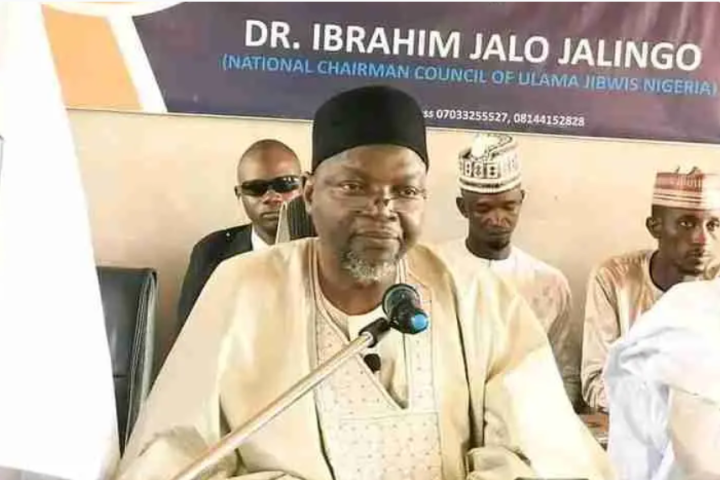By Emmanuel Onwubiko
In the past few weeks, there have been some spectacular successes scored by the country’s counter-narcotics agency, the National Drug Law Enforcement Agency (NDLEA).
But that’s not the topic of today’s discussion. We are rather worried about a re-emerged existential situation that drug traffickers have evolved which is the swallowing of hundreds of pellets of hard drugs into their tummies aided probably by surgeons.
Join our WhatsApp ChannelThis practice is not new. But the resurgence of this style of crime at a time of expansive knowledge of medicine and the circulation of researched information detailing out the risks this practice posed to the lives of the drug traffickers, is what is shocking to me.
We are actually burdened with the intellectual calling to unearth why on earth, a man or a woman would take the risk and endanger his or her life by swallowing packaged illicit drugs and substances so that they can evade capture even when it is notorious that most nations have developed technologies that are capable of detecting those hidden pallets of hard drugs.
Also, we are also disturbed by the ugly fact that professional medical surgeons who spent many years in the medical faculties alongside the heavy financial commitments to their trainings, would be seen aiding and abetting the committing of these heinous crimes of drug trafficking by accepting to conduct surgeries to conceal hard drugs. An observer conversant with the medical ethics or what is professionally identified as Hippocratic oath administered on medical doctors which is basically obliges doctors to primarily save life.
Part of the oath is the requirement that physicians promise to be competent, compassionate and confidential. Also under the Hippocratic oath which is historically, a set of ethical standards for physicians that originated in ancient Greece, is the obligation on medical doctors is to ensure that they treat patients with digmity and respect and to provide the best care for their patients. It is then clear that if a medical doctor abandons such a set of beautiful law to safeguard life but opt for quick wealth by agreeing to endanger the lives of these drug peddlers, it calls for a broad-based and indeed intensive introspection to ascertain what can be applied as the most severest penalty to deter such unprofessional conduct.
I’m aware that our country has a Medical and Dental Council of Nigeria, which deals with the enforcement of standards of practice by doctors and dentists. This disciplinary body should look at ways of dissuaded surgeons from participating in the activities of the practitioners of crimes such as drug trafficking especially in the area of helping the traffickers to conceal cocaine and other illicit substances in their internal organs.
The first of the two major cases informed us that the operatives of the National Drug Law Enforcement Agency have saved the life of a 59-year-old businessman, Chijioke Igbokwe after he underwent emergency surgery to remove 57 out of 81 pellets of cocaine lodged in his stomach.
The surgery, an exploratory laparotomy, was performed after Igbokwe spent seven days struggling to excrete the illicit substance, which he had ingested in Addis Ababa, Ethiopia.
A statement released by the agency’s spokesman, Femi Babafemi, said Igbokwe was arrested on January 26, 2025, at Murtala Muhammed International Airport, Lagos, during the inward clearance of passengers on an Ethiopian Airlines flight.
He added that a body scan conducted by NDLEA officers confirmed he had ingested illicit drugs, after which he was immediately placed under excretion observation at the agency’s medical facility.
Babafemi said, “Investigations revealed that Igbokwe, who claims to be a clothing trader at Arena, Oshodi, Lagos, departed Lagos on January 22 for Addis Ababa, where he ingested the 81 wraps of cocaine on 23 January before boarding a flight to Beirut, Lebanon, to deliver the illicit consignment for a fee of $3,000.
“Upon his arrival in Beirut, he was denied entry because he had less than $2,000, the minimum amount required for admission. He was subsequently deported to Addis Ababa, where he attempted to excrete the illicit drugs but failed. He then travelled to Lagos on January 25 with the consignment still in his system but was arrested upon arrival at the Lagos airport by NDLEA officers on January 26.
“After five days under excretion observation, he could only expel 24 pellets following initial medical intervention at the agency’s medical facility and Lagos State University Teaching Hospital, Ikeja. With time running out and complications arising from underlying medical conditions, he was eventually admitted to a tertiary hospital, where he underwent an exploratory laparotomy to extract the remaining 57 wraps of cocaine. The procedure was carried out after his wife and brother signed the necessary consent forms on 30 January.”
READ ALSO: NDLEA Launches Massive Raids In Lagos, Edo, Ondo, Seizes 44,948kg Drugs, 11 vehicles
The second incident which is fresh has it that attempts by two drug kingpins to smuggle into Nigeria consignments of heroin through the Port Harcourt International Airport and the Murtala Muhammed International Airport, MMIA, have been foiled by operatives of the National Drug Law Enforcement Agency, NDLEA.
One of the kingpins who uses dual identities to aid his cross-border movements has a Nigerian passport with his original name: Onyekwonike Elochuckwu Sylvanus, 30, and that of Sierra Leone with a different name: Kargbo Mohamed Foday. He was intercepted by NDLEA officers with his Sierra Leonean passport on Sunday 2nd February 2025 at the Port Harcourt airport, Rivers state during the inward clearance of passengers on a Qatar Airways flight from Doha through Abuja to Port Harcourt.
He was subsequently taken for a body scan which confirmed he ingested illicit drugs and thereafter placed under excretion observation during which he expelled a total of 62 wraps of heroin in five excretions, weighing 1.348 kilograms.
READ ALSO:NDLEA Destroys Over 300,000 Kilograms Of Drugs In Lagos, Ogun State
Investigation reveals Onyekwonike Elochuckwu Sylvanus (alias Kargbo Mohamed Foday) alternates his two identities for different drug trafficking missions between Thailand, Pakistan, Iran, and West African countries. He claimed to have gone full-time into the illicit drug trade in 2017 when his clothing and shoe business went down.
The second kingpin, James Herbert Chinoso, 48, was arrested by NDLEA operatives at the Lagos airport on Saturday 1st February upon his arrival from Madagascar via Addis Ababa, Ethiopia on an Ethiopian Airlines flight. After a body scan confirmed illicit drug in his system, he was placed under excretion observation during which he ingested 63 wraps of heroin with a total weight of 909 grams.
Chinoso left Lagos for Madagascar on 26th January 2025 and returned via Addis Ababa after spending a week. He claimed to have gone into the criminal trade after his phone accessories business in Liberia collapsed.
Back to our earliest question on why someone would endanger his life by swallowing hard drugs that if these chemical substances should explode inside of their internal body systems, could spell doom for the person or persons? One immediate response is that desperation that comes from poverty may be responsible for such a dangerous decision. Again, there is a generally believed story about the degeneration and deviation from the tested and trusted African cultural value system that prioritises hard work and discourage the making of wealth through inexplicable ways or through outright crimes.
There were times in the past, when this writer was a little boy, our parents would normally not allow the children to bring home items from school which are not ours. There were stiff sanctions for any children who pilfer pen of other pupils and also the traditional rulership was baser on merits and competence and not on who has the biggest cash. Then when young people travel outside their immediate environment and return with ostentatious lifestyles and start building mansions or driving exotic cars, the society would normal inquire from the person how he or she came suddenly into such a stupendous wealth.
READ ALSO: NDLEA Boss Calls For Global Synergy To Combat Drug Trafficking Networks
In the area of awarding titles in the traditional African and Nigerian society, the King’s do not prioritise cash gifts as the basic requirement for honouring persons. People are bestowed traditional titles based on verifiable achievements. Suddenly, Around the mid-1990s, most Nigerians began to over value persons with unjustifiable wealth and also, the high rate of corrupt practices in the organised political system, fastened the erosion of the much respected African traditional value attached to honesty, hard work and purity of professional attainments.
Gradually, young people began to see making money by every means possible including doing crimes such as drug trafficking, as something that is worth embarking upon. At some points, a lot of young persons adopted the criminal mind-set that it is acceptable to chase after money by every means possible even at the risk of being killed since they say ‘make money or die trying. So this tendency that became emblematic of the popular social culture amongst the majority of the young people, became a very strong force that compelled many deviants to embrace the world of crime. Some people even glorifies such crimes like drug trafficking and even went as far as respecting drug barons who have made it and built the notorious reputation of having ran into enormous wealth through hard drugs. Some young people also fall under the heavy weight of peer pressure when they noticed that their classmates who were hitherto not so wealthy, but suddenly become insanely wealthy. So these are the tendencies that lead to desperation to the point of doing risky crimes without thinking twice. We will look comprehensively at what psychologists say desperation implies.
Desperation in the context of psychology refers to a state of extreme hopelessness, helplessness, and despair that individuals may experience when they believe there are no viable solutions to their problems or when they feel trapped in difficult circumstances.
Psychologists say that desperation is a complex emotional and cognitive response characterized by a sense of urgency and a strong desire for relief from emotional pain or challenging situations.
They afformed also that desperation can have a profound impact on mental and emotional well-being, affecting various aspects of an individual’s life. Psychologists also gave some examples.
Examples of Desperation in Psychology:
Financial Hardship: When individuals face overwhelming debt, job loss, or financial instability, they may experience desperation due to the belief that they cannot meet their basic needs or provide for their families.
Relationship Issues: In cases of troubled or abusive relationships, individuals may feel desperate to escape their situations but may see no clear way out.
Mental Health Challenges: People struggling with severe mental health disorders, such as depression or bipolar disorder, may experience episodes of desperation when they feel overwhelmed by their symptoms. Buy vitamins and supplements.
Addiction: Individuals grappling with addiction may experience desperation when they are unable to control their substance use despite negative consequences. We will also briefly look at some identifiable risks of desperation as expounded by the psychological research work whose citations we have adopted in this reflection.
Risks and Application Areas:
Suicidal Thoughts and Behaviors: Desperation can lead to an increased risk of suicidal thoughts and actions, particularly when individuals see no way to alleviate their emotional pain.
Substance Abuse: Some individuals turn to substance abuse as a way to cope with feelings of desperation, which can exacerbate their problems.
Impaired Decision-Making: Desperation can impair an individual’s ability to make sound decisions, as they may prioritize immediate relief over long-term well-being. (Source/credit: psychology lexicon
CMS glossary/ desperation). Now we will attempt to understand some serious dangers of ingesting or swallowing of hard drugs as elaborated by some medical researches whose brief citation we will quote in the succeeding paragraphs.
The Dangers of Swallowing Cocaine in the words of medical experts are as follows amongst other identified risk factors: “Cocaine is a central nervous system (CNS) stimulant that can be injected, snorted, or swallowed. The negative effects of cocaine can vary in intensity and duration depending on how this drug is used. There have been several reports about people who have ingested cocaine, whether to hide it from authorities or as a form of recreational use and have suffered the consequences. Because such incidents have frequently occurred, our Massachusetts Clearbrook Center is sharing the dangers of swallowing cocaine, the research paper disclosed.
If you would like to know what Cocaine Does to Your Brain, then here is the opinion of medical experts as aforementioned:
“Cocaine works by affecting various areas of the brain, such as its mesolimbic dopamine system (reward pathway), to produce an energetic and euphoric high. Usually, dopamine is released by a neuron into the synapse (space between neurons), where it binds to proteins called receptors on other neurons. Dopamine is then able to send messages between neurons. Afterward, another protein called a transporter removes or recycles the dopamine in the synapse for later use. Cocaine works by activating the release of dopamine and binding to transporters, preventing them from doing their job. This causes dopamine to accumulate between neurons, producing a high.
Can You Swallow Cocaine?
No, you should never swallow cocaine or use it at all. The dangers of swallowing cocaine are linked to the drug’s impact on the cardiovascular system.
(Source/credit: ClearBrook treatment centers
Alyssa Valentin)”.
Lastly, it is commendable that the NDLEA has put in motion, a well-staffed medical department that carries out these life-saving medical treatments to rescue these desperate hard drug traffickers from the dangers of those drugs and illicit substances that they swallowed as a way of hiding them from the law enforcement.
For those young or old citizens desperate to make money by all means and are willing to undergo the dangerous procedures of hiding cocaine or other hard drugs in their system, please stay away from this avoidable risk that may cost you the very precious gift that God has given to you which is LIFE.
Stay alive, keep hope alive, and work hard and pray hard, because the assured result is that positive, constructive, and profitable outcomes will come from your resilient approach to your daily tasks done legitimately.
By the way, I can inform you readers for free that the current management team at the NDLEA headed by Brigadier General Mohammed Buba Marwa(rtd) OFR, CON, is very well equipped and the staff do attend frequent capacity building and knowledge equipping trainings on the handling of modern technologies that quicken the discovery, detections and arrests of drug trafficking gangs whose members have continued to evolve new ways to evade capture.
The bad news for drug traffickers is that, in Nigeria of today, under the currently highly motivated NDLEA, your chances of success in beating the operatives, is very slim. This is why prospective drug traffickers should opt out and embrace legitimate business to stay free from public embarrassment and imprisonment that comes with embarking on drug trafficking.
Once more, I say to you, don’t do drugs and don’t swallow hard drugs because you want to get rich quickly. This step is the fastest way to untimely deaths. Be warned!
Onwubiko is the founder of Human Rights Writers Association Of Nigeria and was National Commissioner of the National Human Rights Commission Of Nigeria.
















